Researchers inspire visitors at photo exhibition
The closing event of the exhibition took place on 8 September 2017. It was a great opportunity for exchanges in a relaxed atmosphere, with lovely classical music played by an outstanding trio and very interesting talks by a series of speakers from various horizons:
Ms S.Gruber, Head of Unit “Marine Resources” at the European Commission (DG Research) talked about the Belem Statement and highlighted why It is important that we include Antarctica in our Atlantic Ocean Research Alliance.
Mr J.Nolan is Junior Policy Officer at the European Polar Board (EPB).
He is part of the EPB Secretariat, based in The Hague. He works to support the EPB with a range of activities, including communications. His personal background is as a physical geographer, largely focused on the polar and alpine regions. He gave us an overview of the EPB and its activities, particularly the new Strategy 2017-2022, and international partnerships.
Mr Nicolas Sifakis is Scientific Officer at the European Research Council (ERC), managing the Earth system science panel. He is an Engineer specialised in remote sensing and in atmospheric chemistry, with a PhD in environmental physics and he is postdoc at the JRC-Ispra. Nicolas had participated in the Task Force that set up the European Environment Agency. He then joined NASA’s Environment and Health Program. Before joining the ERC he was Research Director at the National Observatory of Athens. He gave us an overview of the ERC-projects that relate to innovative research in Antarctica.
Ms M-C Van Wunnik is senior project advisor at the European Agency dealing with EU Research and Innovation Projects, EASME, in charge of Climate Action. She is project officer of the EU Project on Antarctica BE-OI, and she told us about it.
Last but not least, Ms A.Wilmotte is research associate of the FNRS at the University of Liège, in the Centre for Protein Engineering. She studies the diversity and evolution of microscopic photosynthetic organisms, the cyanobacteria or blue-green algae. During her talk, she highlighted the importance of microorganisms in Antarctica, which can be called the ‘forgotten heroes’. She also explained how the Belgian Princess Elisabeth station gives access to an interesting diversity of microscopic and tiny organisms.
The discussion on the basis of the various speeches was lively and showed the high level of interest of the participants.
The guided tour of the exhibition was also well appreciated.
A few reactions on the exhibition:
Montrer, transmettre… votre exposition m’a donné l’envie furieuse de découvrir et d’apprendre encore et encore…
Merci pour ce partage de très grande qualité!
Vous me rappelez les émissions du Commandant Cousteau…
More to come next week!
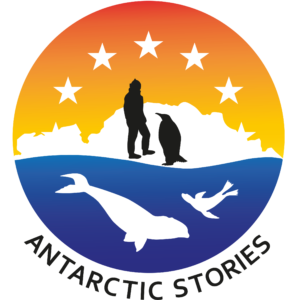
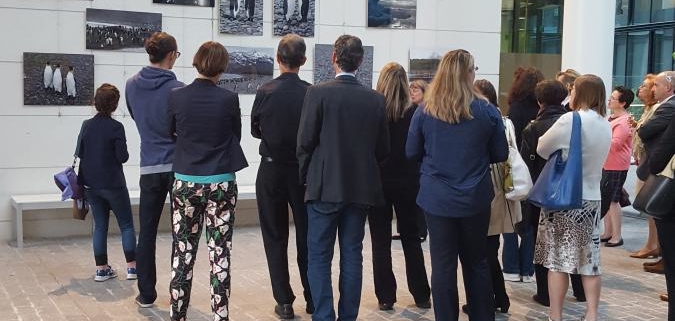
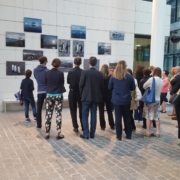
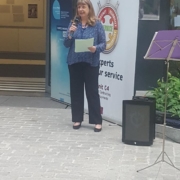
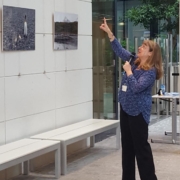



Leave a Reply
Want to join the discussion?Feel free to contribute!